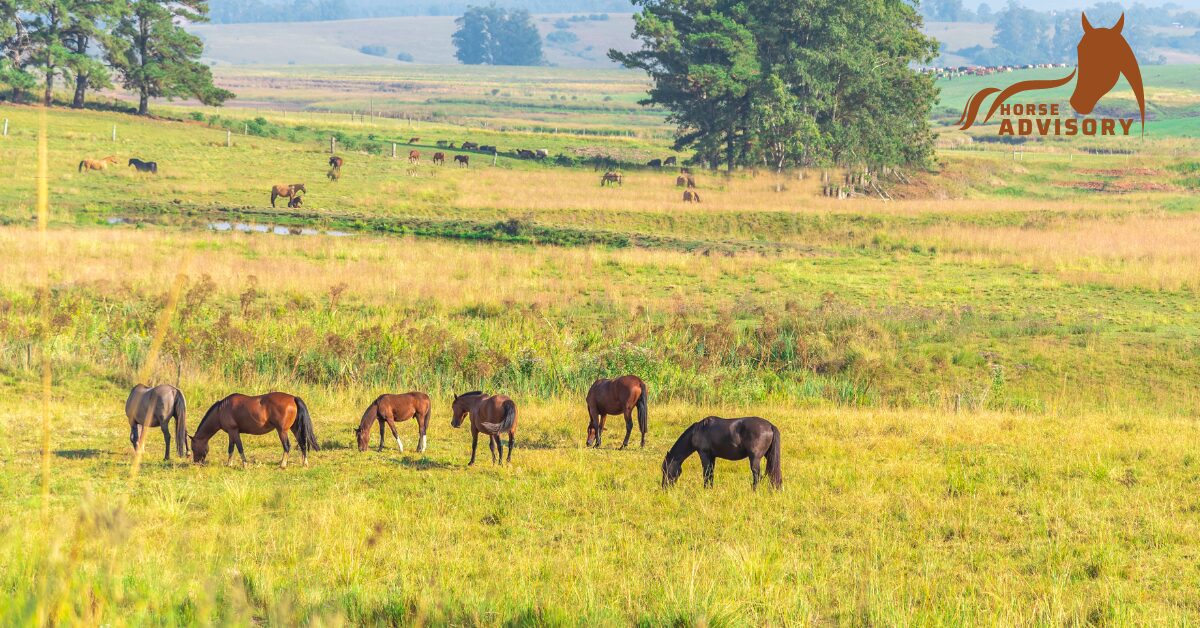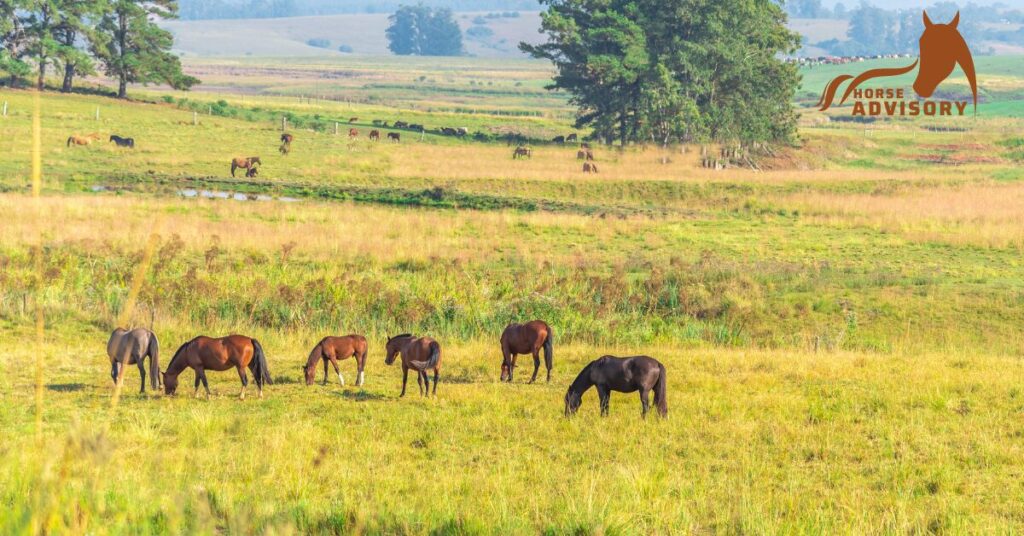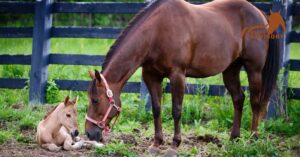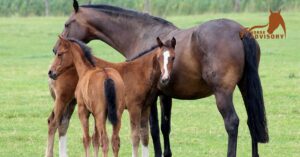From the dawn of agriculture, horses have played a vital role in farm work. Their strength, endurance, and versatility make them invaluable partners in managing a farm. However, not all horse breeds are created equal when it comes to farming tasks. This post will delve into the characteristics that make certain breeds more suited for farm work.
The Versatility of Horses on a Farm
On a farm, horses are not just pets or show animals; they are work partners and essential contributors to farming operations. Their roles are varied and multifaceted, reflecting their inherent versatility. Horses can be seen plowing fields, a task that requires strength and endurance. With their powerful muscles and steady gaits, they can draw plows through different types of soil, preparing the land for planting. This is a role that has been traditionally associated with horses, dating back centuries when horse-drawn plows were the norm in agriculture.
Physical Attributes and Their Impact on Performance
Aside from plowing, horses are also tasked with pulling heavy loads. This could include hauling farm equipment, transporting harvested crops, or moving supplies around the farm. The ability to perform these tasks efficiently is greatly influenced by a horse’s physical attributes. Size, strength, and stamina are crucial factors. Larger horse breeds, such as draft horses, have the size and muscle power necessary for heavy lifting and prolonged physical work. Their strength and endurance make them invaluable in performing demanding farm tasks. However, even smaller breeds can be quite effective in pulling loads, especially over short distances or on smaller farms where space may be limited.
The Importance of Temperament in Farm Work
In addition to physical attributes, a horse’s temperament significantly affects its suitability for farm work. Farm tasks often require patience, calmness, and a willingness to follow instructions. Breeds that are known to possess these traits often excel as farm horses. For instance, horses that are easy to train, responsive, and cooperative can be more efficient in herding livestock. They can quickly understand and respond to commands, making the process smoother and faster. Similarly, calm and patient horses are ideal for transportation roles, providing steady and reliable rides. In conclusion, when choosing a horse for farm work, it’s essential to consider both their physical capabilities and their temperament.

Top Horse Breeds for Farm Work
A. Draft Horses
Draft horses, with their impressive size and power, have been the backbone of many farming activities for centuries. Breeds like the Shire and Clydesdale have a rich history as farm workers, tracing back to medieval times when they were used for plowing fields and pulling heavy wagons. Their sheer size – often standing over 17 hands high and weighing up to 2000 pounds – coupled with their immense strength, makes them a sight to behold.
Their physical attributes make draft horses particularly suited for heavy work such as plowing and hauling. With their strong muscles and large hooves, they can pull heavy plows through tough soil, helping prepare fields for planting. Similarly, their strength and endurance come into play when they are tasked with hauling heavy loads – be it farm equipment, harvested crops, or supplies. They perform these tasks tirelessly, showcasing their remarkable stamina.
Despite their imposing size, draft horses are known for their gentle and calm demeanor. They are generally patient and easy-going, which makes them easy to handle even for novice horse owners. Their trainability and willingness to work make them an asset on any farm, contributing significantly to their popularity as farm horses.
B. Quarter Horses
The Quarter Horse breed, named for its unrivaled speed over a quarter-mile distance, is a versatile addition to any farm. Originating in the United States, this breed is a mixture of native horses with Spanish, English, and Oriental bloodlines. Known for their compact build, muscular body, and agile movement, Quarter Horses are smaller than draft horses but equally impressive in their capabilities.
On a farm, Quarter Horses shine in tasks that require quick actions and agility. Herding cattle is one such task where their speed and quick reflexes are put to good use. They can easily maneuver through a herd, guiding cattle with precision and control. Moreover, their compact size allows them to navigate through tight spaces and rough terrains, making them ideal for diverse farm tasks.
Quarter Horses are not just physically adept for farm work; they also have the right temperament. They are known for their intelligence, willingness to learn, and adaptability. These traits make them easy to train for a variety of tasks, from pulling small carts to riding. Their calm and steady nature combined with their quick learning ability makes them a favorite among farmers and ranchers alike.
C. Belgian Horses
Belgian horses, as their name suggests, originated from the fertile farmlands of Belgium. They were bred to be strong and hardy, capable of withstanding the rigorous demands of farm work. These horses are robust, often weighing between 1800 to 2000 pounds, and stand at around 16 to 17 hands high. Their physical strength is complemented by their gentle and docile nature, making them a favorite among farmers.
Their strength and endurance make Belgians adept at pulling heavy loads and working long hours. Whether it’s hauling harvested crops, pulling farm machinery, or transporting heavy goods, these horses can handle it all. Their stamina allows them to work for extended periods without tiring, an attribute that is essential for farming tasks that require prolonged effort.
Despite their size and strength, Belgian horses are known for their gentle nature. They are calm, patient, and incredibly easy to work with. Their temperament, combined with their willingness to work, makes them one of the most reliable and dependable horse breeds for farm work.
D. Clydesdale Horses
Clydesdales are instantly recognizable due to their feathered legs and unique gait. Originating from Scotland, they were named after the River Clyde and its valley. They are large, typically standing over 17 hands high, and are known for their muscular build and distinctive features.
Clydesdales are not just pretty faces. They are powerful workers, capable of handling heavy farm machinery and tasks. Their strength allows them to pull heavy loads with ease, making them ideal for tasks such as plowing fields or hauling equipment. Despite their size, they are also quite agile, able to move with an elegance that belies their bulk.
Known for their gentle and friendly disposition, Clydesdales are easy to handle and train. They are intelligent and willing to work, traits that make them highly adaptable to various farm tasks. Their calm temperament combined with their strength and agility makes them a valuable asset to any farm.
E. Percheron Horses
Percherons originated from France and are one of the most popular draft horse breeds worldwide. They combine power with grace, showcasing both physical strength and elegant movement. These horses are large, typically standing between 15 to 19 hands high, and have a muscular build that hints at their strength.
Percherons are intelligent and willing to work, making them suitable for a variety of farm tasks. They are often used in both field work and for pulling carriages. Their strength allows them to pull heavy loads with ease, while their graceful movement makes them ideal for carriage work.
Like many draft breeds, Percherons are known for their calm and steady nature. They are intelligent and quick learners, making them relatively easy to train. Their willingness to work, coupled with their strength and grace, makes them a versatile and valuable addition to any farming operation.
Factors to Consider When Choosing a Horse Breed for Farm Work
When choosing a horse breed for farm work, it’s crucial to consider your farm’s size and needs, the type of tasks you’ll need the horse to perform, your local climate, and the horse’s temperament. Here are factors to consider when choosing a horse breed for farm work:
Understanding the Needs of Your Farm
Before choosing a horse breed for farm work, it’s crucial to understand the specific needs of your farm. The size of your farm plays a significant role in this decision. Larger farms often require more heavy-duty work and thus may benefit from stronger draft breeds like the Belgian or Clydesdale. These breeds are well-suited to tasks such as plowing fields and hauling heavy loads due to their size and strength. On the other hand, smaller farms or those with diverse tasks might find versatile breeds like the Quarter Horse more suitable. These horses are agile, quick, and capable of performing a variety of tasks efficiently.
Analyzing the Type of Tasks
The type of tasks that the horse will perform is another crucial factor to consider. If your farm involves a lot of cattle work, you’ll need a breed that’s quick and agile, like the Quarter Horse or Australian Stock Horse. These breeds excel at herding and can swiftly maneuver through cattle. For farms that require a lot of heavy pulling or field work, a draft breed would be more appropriate. Draft horses like the Percheron or Shire have the strength and stamina to perform such tasks effectively.
Considering the Local Climate
Your local climate is also a significant consideration when choosing a horse breed for farm work. Some breeds fare better in specific weather conditions than others. For example, Fjord horses are known for their ability to withstand cold climates, while Arabian horses are more suited to warmer, desert-like conditions. Therefore, it’s important to choose a breed that can comfortably and healthily live in your local climate.
Assessing the Horse’s Temperament
Finally, the temperament of the horse is an essential factor. Farm work often requires patience, calmness, and a willingness to follow instructions. Breeds that are known for these traits often make excellent farm horses. For instance, the Belgian horse is known for its gentle nature and willingness to work, making it a good choice for those new to handling horses. On the other hand, if you’re looking for a horse that’s spirited and energetic, a breed like the Thoroughbred might be more suitable. However, keep in mind that while these horses are highly intelligent and trainable, they may require an experienced handler due to their energetic nature.
Caring for Your Farm Horse
One of the fundamental aspects of caring for a farm horse is ensuring it has a balanced diet. Horses are grazing animals, so the majority of their diet should be made up of forage such as grass or hay. However, the nutritional needs of a working farm horse may be higher than those of a horse used primarily for leisure, so additional feed may be necessary. This can include grains or commercially prepared horse feeds. Always provide clean, fresh water for your horse to drink, and monitor its weight and body condition regularly to keep tabs on its overall health. Remember, feeding should be adjusted according to the horse’s work intensity, age, and size.
Just like humans, horses need regular exercise to stay fit and healthy. For a farm horse, much of this exercise will come from its daily work. However, it’s also important to allow the horse time to unwind and simply be a horse. Regular turnout in a safe, fenced area where the horse can run and play is beneficial for its mental well-being. Grooming is another important aspect of horse care. Not only does it keep the horse’s coat, mane, and tail looking good, but it also allows you to check for any signs of injury or illness. Regular hoof care is also crucial to prevent conditions like laminitis or hoof cracks.
Routine health checks are an essential part of caring for a farm horse. This includes regular vaccinations, deworming, and dental checks. A veterinarian can provide advice on the appropriate care schedule based on your horse’s age, breed, and workload. Regular vet check-ups are also important to catch any potential health issues early. It’s also advisable to have a first aid kit specifically for your horse, equipped with items like bandages, antiseptic solutions, and a thermometer. Remember, a well-cared-for horse is a productive worker, and taking the time to ensure your horse’s health and happiness will pay dividends in its performance on the farm.
Conclusion
Whether it’s a powerful Clydesdale or a versatile Quarter Horse, the right breed can make farm work much easier. However, it’s important to consider your specific needs and circumstances before making a decision. With careful consideration and proper care, your horse can become a valuable and beloved part of your farming team.





